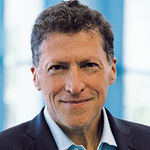Arnie Weissmann
The Japanese have a word for all the books on your shelves that you haven’t read yet: tsundoku. It translates as a combination of the Japanese words for “letting things amass” and “reading.”
I read a lot but am also a practitioner of tsundoku. The titles you see in my bookcases are only the surface layer; there are books lurking behind those. My wife worries the bookcases themselves will collapse under the weight.
In an essay by a writer for the company Big Think, which produces videos, essays, interviews and newsletters promoting the ideas of thought leaders in numerous fields, the argument is made that there is value in those unread books.
The essay suggests that the presence of unread books serves two purposes: They prompt you to ponder how much you don’t know — something that’s always good to keep in mind — and motivates you to learn more. Looking at my own shelves, I’m reminded of my ignorance about everything from meteorology to the I Ching to Soviet space dogs.
But sometimes new books come along that jump the queue, and I open them right away. I received two such books recently, one fiction and one nonfiction, that impart complementary lessons about the art of hospitality.
Both are written by experienced hoteliers, and both have value for anyone in travel. Hospitality underpins all sectors of the industry, from retailing to cruise to aviation.
Or rather, it should. That’s the overlapping message between the two.
The nonfiction “Honing the Human Edge” (Greenleaf Book Group, 2025) is written by Edward Mady, whose career in luxury hospitality has included stints at the Beverly Hills Hotel, Hotel Bel-Air and several Ritz-Carlton and Four Seasons properties. He was named Hotelier of the World by Hotels Magazine in 2017.
Mady delivers on the cover blurb that promises to tell “How Leaders Can Unlock Success Through Caring, Coaching and Accountability.” He argues that humanity is instrumental in navigating crises and creating alignment across complex organizational structures. He sees the human connection as a strategic advantage “not only to stand out in a competitive world but redefine what success looks like” for individuals and organizations.
His real-world experience anchors what might come off as lofty sentiment. He outlines broad approaches to management during good times and bad but also addresses very specific situations on topics as complex as combining cultures after a merger, as distressing as being sued and as personal as firing a friend.
The other volume that jumped to the front of the line is “Give Hospitality” (Matt Holt Books, 2025) by Taylor Scott. It’s an unusual business book because it’s written entirely as a fable. Its imaginary protagonist, Summer Grace, gets a job at an imaginary Hawaii hotel, Kauwela Resorts, and the 180-page book details her journey through a five-day orientation for new employees, workshopping the company’s core values while she gets to know managers and fellow initiates.
While it’s doubtful this will be up for a National Book Award, the unusual construct delivers lessons on compassion, encouragement, kindness and leadership in an accessible format. By setting the property in Hawaii, Scott also introduces many concepts of the aloha spirit that underlie the Islands’ culture and are natural guidelines to hospitality.
In the book’s acknowledgements, Scott says that the fictional property’s general manager, Arthur, is based on the real-life Arthur Keith, who had been a mentor when Scott attended Cornell University’s school of hotel administration. Keith is the current GM of the university’s on-campus Statler Hotel.
Scott had previously written a more straightforward business book, “Lead With Hospitality” (Matt Holt Books, 2021). Summer Grace, the fictional heroine of “Give Hospitality,” makes a brief appearance there, too, in a parable in that book’s introduction.
Previously, Scott had worked for Disney, Gaylord, Wynn and, in Las Vegas, the Cosmopolitan. He’s currently a travel advisor — he owns Lead with Hospitality Travel Group by Dream Vacations — and is an industry consultant/speaker.
In the book’s epilogue, Scott asserts he would like to actually create a Kauwela Resort in Hawaii and asks readers who might be interested in partnering, collaborating or investing to contact him.
As a practitioner of tsundoku, I’m still a novice. The author Umberto Eco, whose best-known fictional work “The Name of the Rose” (Harcourt, 1980) is a medieval murder mystery set in a monastery’s library, had a personal library of 30,000 books. Even he admitted that if he read a book a day for 70 years, he could only get through 25,200 of them.
You’ll have an easier choice than Eco to decide what to read next. If you’re in the travel industry, you might consider letting these two hospitality-focused newcomers take precedence. Although I still look forward to learning more about meteorology, the I Ching and Soviet space dogs, I have no regrets that I let these two new books cut the line.

